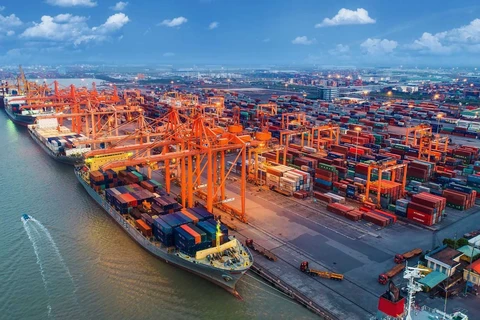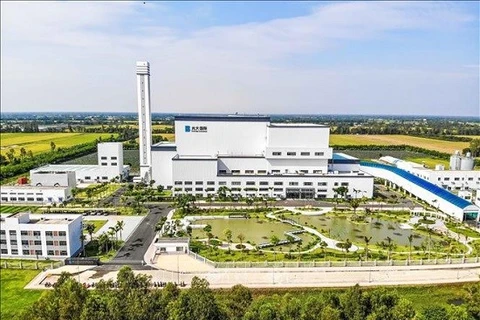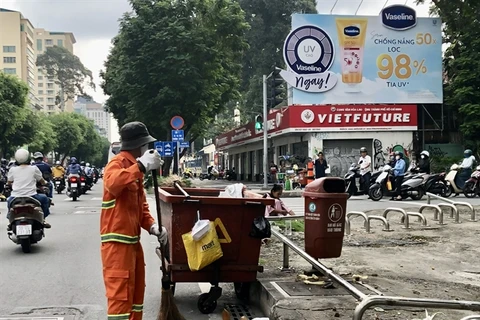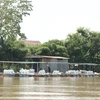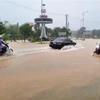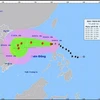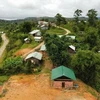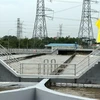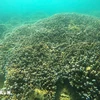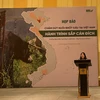Bac Ninh (VNA) - A plant that treats domestic solid waste and industrial waste to generate electricity was inaugurated in Phu Lang village, northern Bac Ninh province, on November 1.
This is the first private waste-to-energy plant in Vietnam which was invested by Green Star Environmental Company Limited of Vietnam and Chosun Refractories ENG Co., Ltd. from the Republic of Korea (RoK).
The plant has a waste treatment capacity of 800 tonnes per day, with the major incinerator capable of handling 100 tonnes of household waste and 80 tonnes of industrial waste a day, and generating 6.1MW of electricity, using the waste heat recovery technology from the RoK.
The project cost about 45 million USD, of which 32 million USD was invested in the incinerator by the Vietnamese and Korean firms. It broke ground in July 2020, took shape in the second quarter of 2022, and successfully connected to the national power grid in August 2022.
The project will help protect the environment of Bac Ninh province, and provide about 40 million kWh/year to the locality. It is expected to soon become a pioneering model for exchanging carbon certificates in line with the 1995 Paris Agreement and a bilateral agreement between Vietnam and the RoK.
According to the Bac Ninh People’s Committee, the province has four waste-to-energy plants with a combined capacity of 1,300-1,500 tonnes a day. The plants using world advanced technology are expected to treat daily domestic waste by the second quarter of 2024./.
This is the first private waste-to-energy plant in Vietnam which was invested by Green Star Environmental Company Limited of Vietnam and Chosun Refractories ENG Co., Ltd. from the Republic of Korea (RoK).
The plant has a waste treatment capacity of 800 tonnes per day, with the major incinerator capable of handling 100 tonnes of household waste and 80 tonnes of industrial waste a day, and generating 6.1MW of electricity, using the waste heat recovery technology from the RoK.
The project cost about 45 million USD, of which 32 million USD was invested in the incinerator by the Vietnamese and Korean firms. It broke ground in July 2020, took shape in the second quarter of 2022, and successfully connected to the national power grid in August 2022.
The project will help protect the environment of Bac Ninh province, and provide about 40 million kWh/year to the locality. It is expected to soon become a pioneering model for exchanging carbon certificates in line with the 1995 Paris Agreement and a bilateral agreement between Vietnam and the RoK.
According to the Bac Ninh People’s Committee, the province has four waste-to-energy plants with a combined capacity of 1,300-1,500 tonnes a day. The plants using world advanced technology are expected to treat daily domestic waste by the second quarter of 2024./.
VNA

